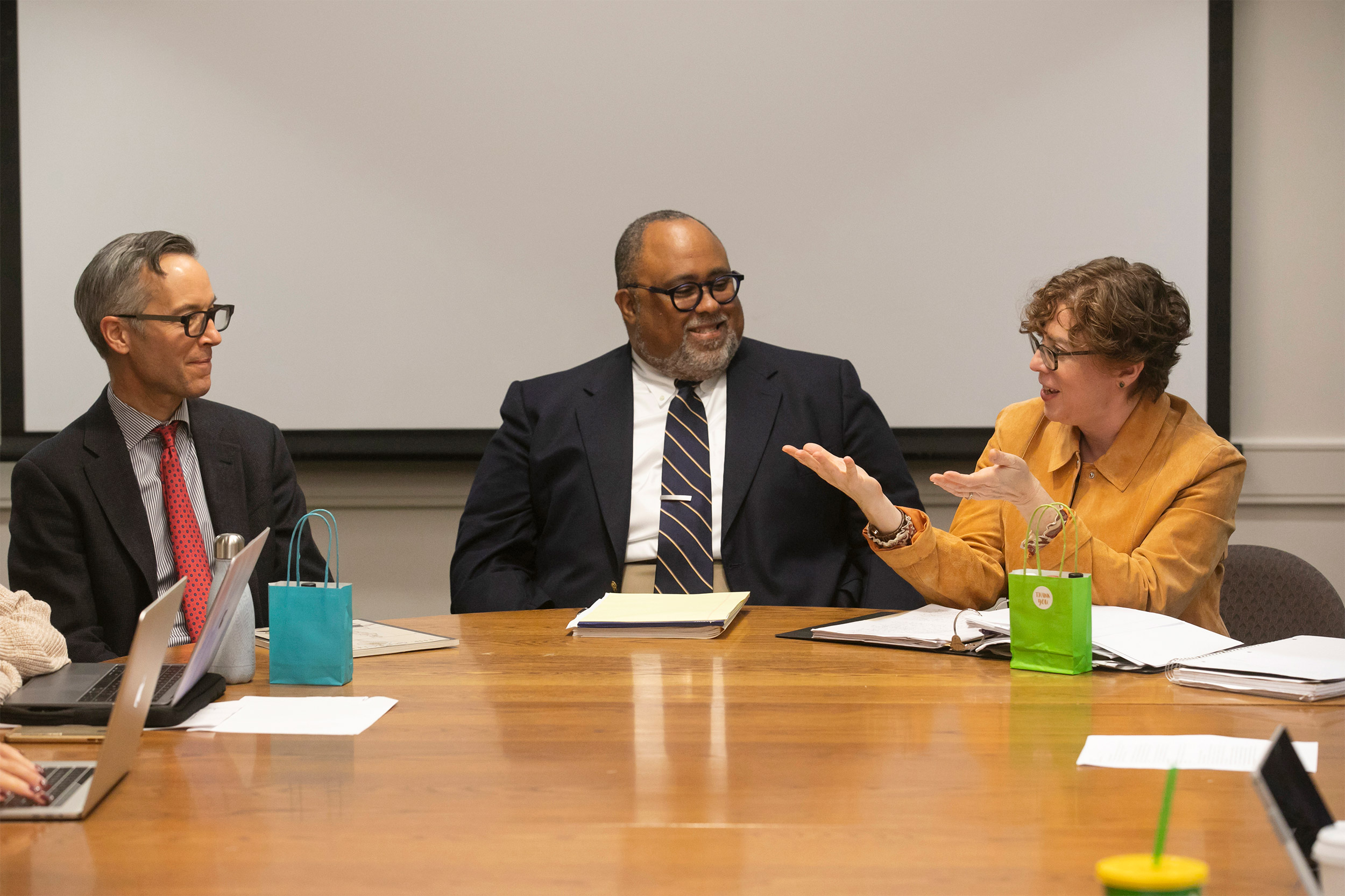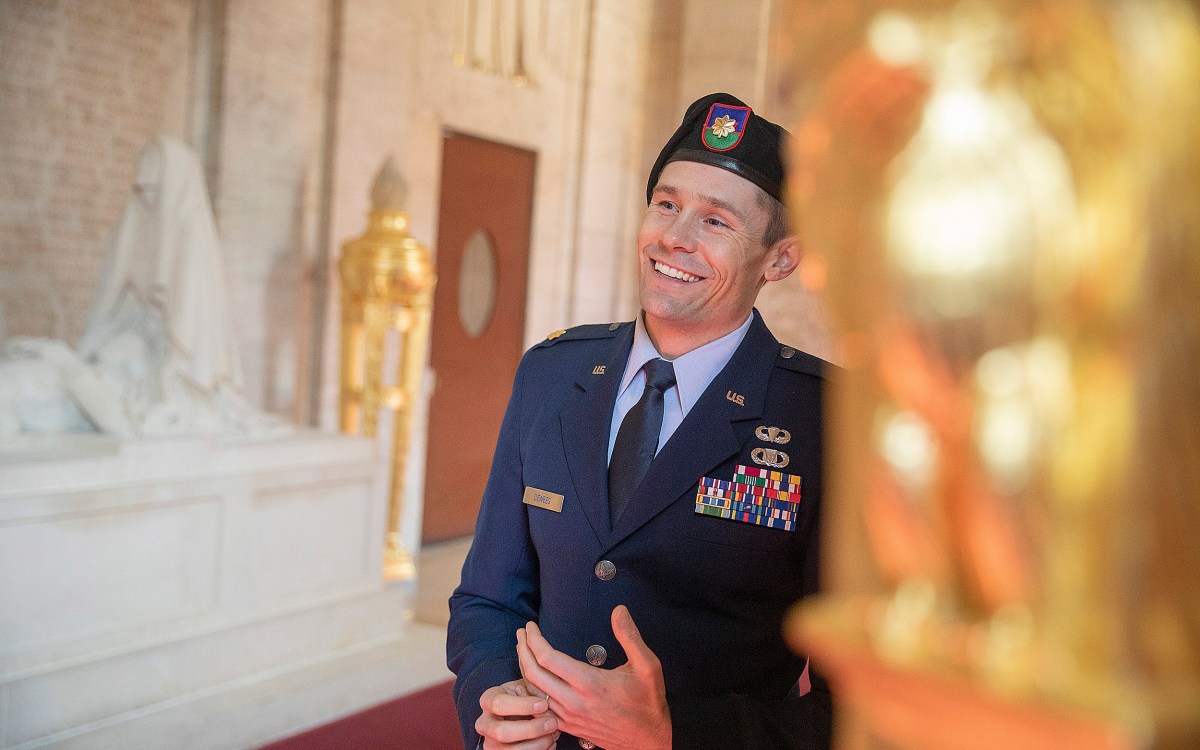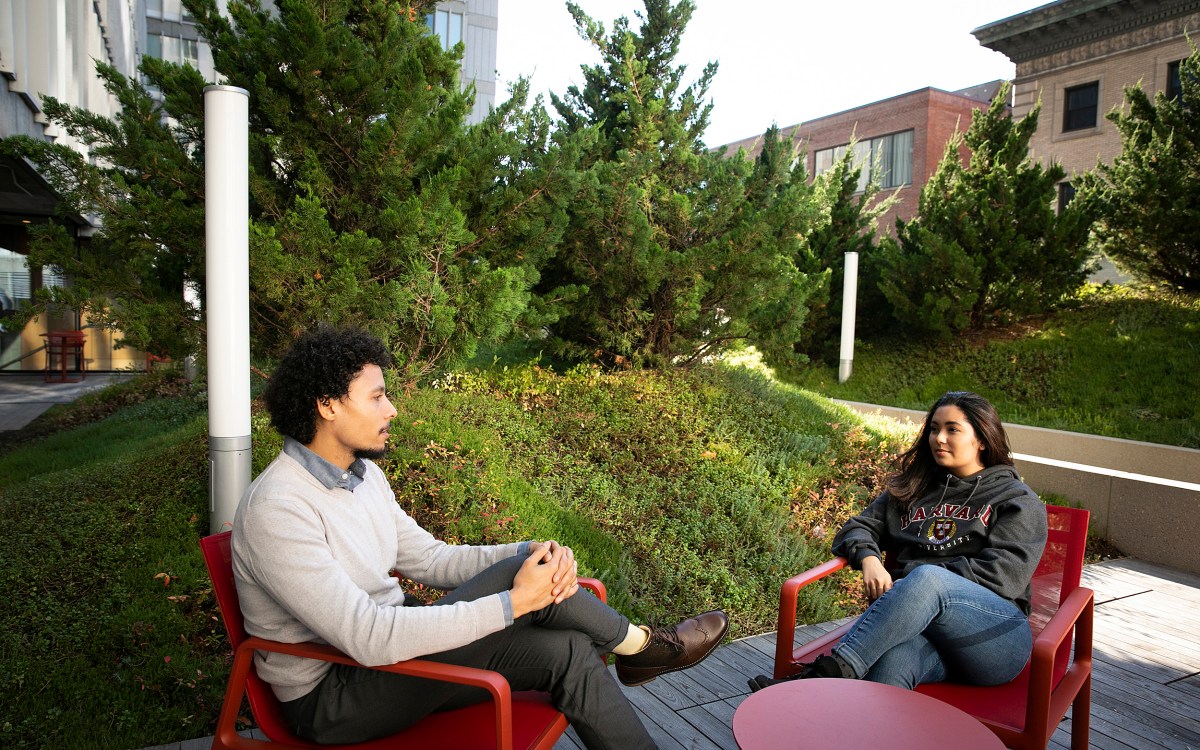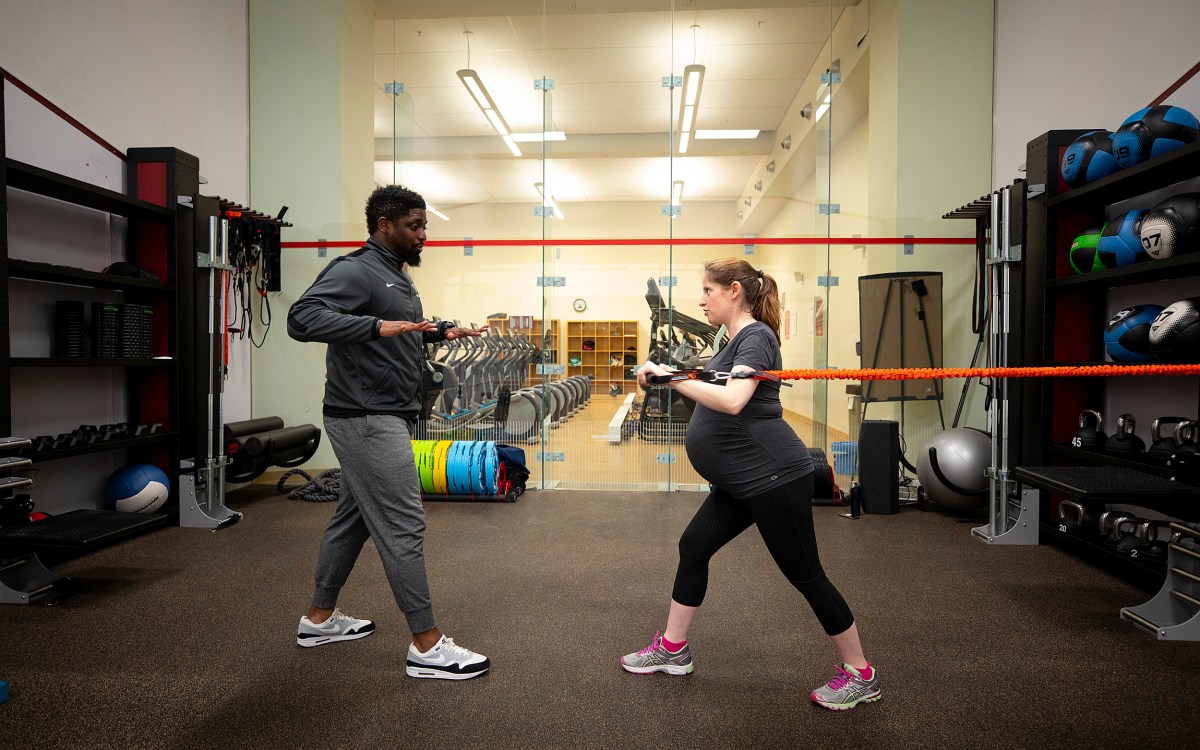
“The goal of this course is to democratize the knowledge that is needed to succeed in graduate school and in academia,” said Professor Robin Bernstein (right), who launched “Introduction to Graduate School: Skills and Practices for Scholarly Success” in the fall. Sharing in the discussion are Deans Robin Kelsey (left) and Lawrence Bobo.
Jon Chase/Harvard Staff Photographer
An insider’s guide to the life academic
From note-taking to CVs to grants, new course teaches the nuts and bolts of graduate school and beyond
What does an academic CV look like? Is it important to join a scholarly association? How do travel grants work?
The skills and information graduate students need to succeed extend far beyond what they learn in their classes. In a new course designed and taught by Robin Bernstein and offered by the Graduate School of Arts and Sciences (GSAS), newbies learn the “hidden curriculum” of graduate school and how to navigate the singular world of academia.
“There’s no reason that anybody should be expected to know anything that they haven’t been taught,” said Bernstein, the Dillon Professor of American History and professor of African and African American Studies and of studies of women, gender, and sexuality. “Whenever a person is expected to pick up something magically, that’s a sure sign that power is working in insidious ways and a sure sign that elitism is afoot, in the case of academia. The goal of this course is to democratize the knowledge that is needed to succeed in graduate school and in academia.”
Bernstein conceived of “Introduction to Graduate School: Skills and Practices for Scholarly Success” five years ago and launched the course this fall for students in the social sciences and arts and humanities. Course topics included building a professional website, applying for research grants, and reading academic material efficiently.
“Graduate school is a professionalizing experience, and I’m a very practical person, so as soon as I got here, I wanted to find the class that would tell me everything I needed to know about succeeding,” said Massiel Torres, a second-year Ph.D. student in romance languages and literatures. “From our coursework in our departments, we gain knowledge to master our fields, but I also wanted to know the core of what we do as professionals. This class demystifies that process.”
From reverse-engineering CVs of working professors to developing note-taking tactics for dense texts, each activity was designed to give students a roadmap to better understand the expectations. Students also compared strategies and commiserated about the issues they faced inside and outside the classroom.
“The class is wonderful, and Professor Bernstein is very informative,” said Joseph Núñez, a second-year doctoral student in anthropology. “Students are open about their anxieties. Instead of this class being thought of as patching weaknesses, we understand that we’re strengthening and expanding our skills and knowledge beyond graduate school. We discuss some of the nuances associated with academic and [alternative academic] careers.”
“There can be shame associated with not knowing something in graduate school, and in this class that shame is being addressed in a productive and healthy way.”
Divya Chandramouli, fourth-year Ph.D. student
“I’m a first-generation Ph.D. student, so it’s important for me to have a space like this to ask questions and share things that might make me uncomfortable in other settings. There are students who come to Harvard with a tradition of Ph.D.s in their family, so they have a certain confidence,” added Torres. “Professor Bernstein assumes that we don’t know everything, which is great in many ways, because it is difficult when you don’t know something, but don’t want to appear as if you don’t know it.”
To combat fatigue and burnout, Bernstein’s students also got an education in time management and the “rhythm” of academic workflow. There was no final paper or exam for the course, but students submitted written assignments nearly every week for a cumulative grade.
“The work never escalates, but it is challenging and significant,” said Bernstein. “There are no highs and lows in terms of deadlines, which is a rhythm that is most helpful when it comes time to write a dissertation. It’s important to be prompt and move with alacrity, but never to rush.”
For many students, the class also offered a valuable opportunity to address issues like imposter syndrome and the anxieties associated with not knowing the unwritten rules of the academy.
“Something that comes up in this class often is the acknowledgement that most people in graduate school historically were white men, and that’s especially true at Harvard,” said Caleb Shelburne ’18, a first-year Ph.D. student in the history of science. “These systems were not necessarily designed to preserve white power or patriarchy, but they do, functionally, because of who has access to the systems. A class like this that addresses those systems, makes them explicit, and critiques them.”
“As each year passes, I am continually surprised by how many things we’re expected to know,” said Divya Chandramouli, a fourth-year Ph.D. student in South Asian studies. “There can be shame associated with not knowing something in graduate school, and in this class that shame is being addressed in a productive and healthy way. I hope that eventually every student in graduate school here has access to something like this.”







